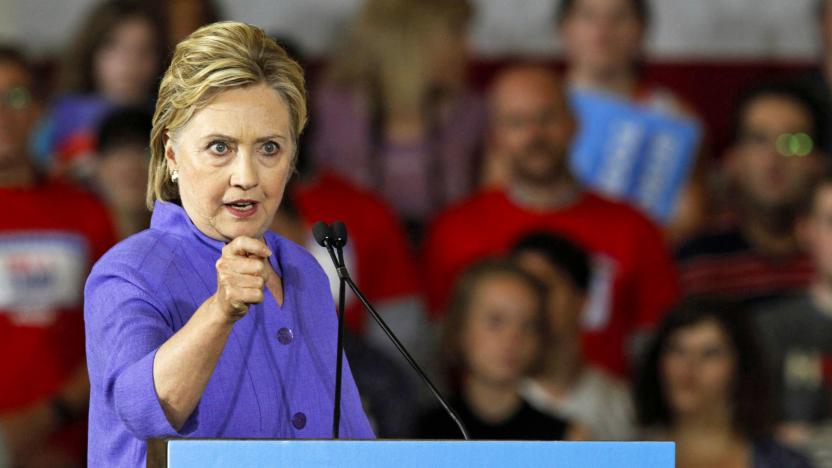techpolicy
Latest

Clinton's tech policy includes student loan relief for startups
Now that we're down to just one nominee per party, we're starting to hear some finer points of the candidate's platforms. Presumptive Democratic presidential nominee Hillary Clinton revealed a more detailed tech policy today, a plan that includes high-speed internet for every household over the next four years, cybersecurity, net neutrality and more. Those tenets have already been discussed, but the more recent developments include student loan help for entrepreneurs and funding for STEM education.

OK Go's impassioned plea for net neutrality, quirky videos
It looks like Damian Kulash has given some serious thought to the issue of net neutrality, going so far as to voice his concerns in the Washington Post this weekend. The OK Go man began with a brief overview of the Google / Verizon "net neutrality" scheme, but this is the part that really caught our interest: The Internet is the purest marketplace for ideas that the world has ever seen, and the amazing power of such a level playing field has revolutionized everything. Google knows this better than anyone. It started in a garage and became an industry leader by having great ideas, not mountains of cash. And it's wonderful: The Internet works! It rewards innovators such as Google, and it relegates protectionist, defensive, idea-squashing fogies such as record companies to the dustbin of history. Now that the Internet has been around long enough to have developed its own giants, though, we need to make sure they don't ruin what's great about the technology that made them. We need to make sure they don't crush the idea industry the way the music giants crushed the music industry... And this is why net neutrality is important: it preserves the virtues of the technology (and protects them from a market that would erode those virtues for short-term gain). Really, the whole thing's worth a quick read. Hit up the source link to check it out for yourself.

Google and Verizon's net neutrality proposal explained
After a week of rumors hinting at Google and Verizon brokering some sort of net neutrality "deal," the two companies made some waves this afternoon with a hastily-arranged press call during which CEOs Eric Schmidt and Ivan Seidenberg emphatically denied any sort of formal business arrangement and instead put forth what they called a "joint policy proposal" -- seven principles they say will preserve the open internet while allowing network operators the flexibility and freedom to manage their networks. What's interesting is that the announcement comes just few days after the FCC declared its closed-door net-neutrality meetings with ISPs and other interested parties to be dead -- it's odd for Google and Verizon to claim their new proposal is just an extension of their joint statement in general support of net neutrality from last October when it's very clearly an articulation of a specific plan that was undoubtedly proposed and rejected during those failed meetings. Now, we don't know for sure what happened, but we've got a theory: the proposal reads to us like Verizon's basically agreeing to trade neutrality on its wired networks for the right to control its wireless network any way it wants -- apart from requiring wireless carriers and ISPs to be "transparent" about network management, none of the neutrality principles that govern wired networks will apply to wireless networks. That's a big deal -- it's pretty obvious that wireless broadband will be the defining access technology for the next generation of devices and services. But you know us, and we don't do hysterics when we can do reasoned analysis instead -- so grab a copy of the official Verizon / Google Legislative Framework Proposal right here and let's break it down step by step, shall we?
